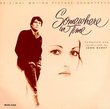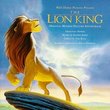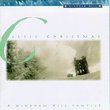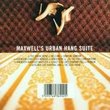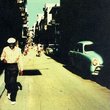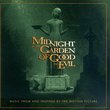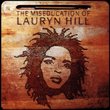| All Artists: Ludwig van Beethoven, Annie Fischer Title: Beethoven: Complete Piano Sonatas [Box Set] Members Wishing: 3 Total Copies: 0 Label: Hungaroton Release Date: 1/29/2002 Album Type: Box set, Import Genre: Classical Styles: Chamber Music, Forms & Genres, Sonatas, Historical Periods, Classical (c.1770-1830), Romantic (c.1820-1910) Number of Discs: 9 SwapaCD Credits: 9 UPCs: 675754472122, 5991814100329 |
Search - Ludwig van Beethoven, Annie Fischer :: Beethoven: Complete Piano Sonatas [Box Set]
![Beethoven: Complete Piano Sonatas [Box Set]](https://nationalbookswap.com/cd//l/88/9388/6099388.jpg) | Ludwig van Beethoven, Annie Fischer Beethoven: Complete Piano Sonatas [Box Set] Genre: Classical
|
Larger Image |
CD DetailsSimilarly Requested CDs
|
CD ReviewsMy Favorite Beethoven Piano Sonata Set George Perkins | 07/11/2006 (5 out of 5 stars) "I happen to know for a fact that there are a number of you out there who are finding it hard to decide to pay the asking price for this set. Therefore, I shall try to explain why you should do so, immediately. First of all, I will say that I own complete cycles by Gulda, Fischer, Schnabel, Kempff (mono), Kovacevich, Ciccolini, Brendel (VOX), Barenboim (DG), Goode, Roberts, Gilels (incomplete) and Backhaus (mono and stereo.) Of these, Annie's is my favorite complete set, easily. I also own single/double discs by Serkin, Richter, Moravec, Horowitz, O'Conor, Pollini, Kempff (stereo), Arrau, Jando and Rubinstein. Annie also trumps many of these as well. Secondly, I must say that Annie's cycle is remarkably consistent. She does excellent or superb on 25 of the 32. In the others, she is fair or good. In my experience, this is no small feat, in fact only Gulda equals her in consistency, though his imterpretations rarely reach the heights of Annie Fischer's performances. Gulda tends to rush through these works, an approach which doesn't always come off well and even when it does, he still lack's Fischer's depth. Schnabel's legendary set, now available on Naxos from European sellers with excellent transfers by Mark Obert-Thorn, is of course very consistent and superbly played. However, many will likely pass on this set due to the historical sound. Kempff plays these works on a smaller scale that doesn't always work for me, though few can match his tone and beauty. Backhaus's more masculine approach is more to my liking, though his fast slow movements, like Gulda, lack depth. Kovacevich's set is more aggressive than even Annie's, who is surprisingly aggressive when needed and deeply touching and sensitive when appropriate. She handles all three of the main periods of Lvb's works with equal achievement, an incredible feat. Third, the quality of her playing simply has to be heard to be believed. The opening to her Appassionata sonata dispels all worries that you might have that she isn't up the job. You can listen here at Amazon on the page that holds the single disc from this set. Her playing sounds like thunder from the heavens, as does the finale here and in the Moonlight Sonata. She finds young energy in the early works and confident strength and power in the heroic middle sonatas. Her Op. 31 is easily my favorite, combining a great sense of rhythm, drama and beauty. Her Late Sonatas are incredibly profound and gorgeous. Without resorting to some of the more extreme tempo choices others have made, she finds a style all her own that works magnificently. In fact, her tempo choices are almost always just right, never rushing, nor letting the tempo sag. Fourth, when compared to her closest rivals, Schnabel, Gulda, and Kempff, her set has superior sound. She plays a gorgeously dark sounding Bosendorfer that was recorded remarkably well. Her recordings were made in the 70's and 80's and the close miking accurately conveys her sweet tone and powerful fortes. Sure, Goode and Kovacevich may have better sound, but IMO they don't play at her level. Goode's interpretations lack excitement at times, while Kovacevich seems to focus a bit too much on excitement. Fifth, you will notice that the price changes from time to time by some of the marketplace sellers, buying it now saves you from paying more for it later. More importantly, there may not even be a later, for this set is hard to find as it is. This can certainly suggest that it may not stay in print. With talent like this, why gamble? This is mostly a matter of taste of course, I suggest that you listen to the samples here and compare for yourself. I really don't think that you'll be sorry if you choose Annie, though!" Checking the notes again..... Mike Simonsen | San Francisco, CA | 09/14/2006 (5 out of 5 stars) "(...) First, it did not take fifteen years to record these sonatas. The notes are quite clear that they were recorded 1977-78. It is possible considerable patches were recorded later, with some selection of takes still later, but heck, that's been going on since magnetic tape came in after WWII. Check a book by Glenn Plaskin on a certain famous pianist's patching. Vladimir Horowitz was always revisiting performances supposedly already in the can. The only complete Beethoven cycle without splicing is Schnabel's, and there's more of a few of us who suspect he might have benefitted with some. Secondly, Ms Fischer was not a stranger to any of these sonatas. She did concentrate on the named sonatas earlier in her career, as did most pianists of her generation. But these recordings were made following performances of the complete cycle in 16 recitals during 1976-77, after 55 years on the concert platform, and Annie Fischer is about the last pianist on earth to sell glib sight-reading to the public. I saw Annie Fischer only once, in Edinburgh around 1970, and I've never seen a more responsible artist. There's nothing tentative, immature or dishonest about these recordings, and how they were made is less important than the performances they contain. My only cavil is that the sound may be a bit close for a tank like the Boesendorfer. My preference is not for an under-the-lid sound in what sounds like a small studio (see the additional notes below). I like a piano's sound to expand and breathe in a comfortable sized space. However a lot of other people seem to like the pianists's perspective rather than the audience's, and it's the rule, not the exception, among Beethoven cycles. (...) After checking the recordings on the 'scope, I discovered that the engineers have removed most of the stereo information. In some recording setups, the production staff can increase or diminish stereo content as easily as you can raise or lower your volume control at home. What's left in these recordings is not quite a hard knot of pure, vicious mono, but almost. As a result, you are not supposed to find out that the sessions were in fact done in a warm, spacious hall, not in an airless shoe box as you and I might have guessed. (By contrast, Claude Frank's superb set was recorded in a much smaller room, but the breadth of the stereo wears much more easily on the nerves.) The cure for the overly aggressive sound given to Annie Fischer's piano is to retrieve the suppressed stereo information. That restores the environment around the instrument and gives the sound some air. There are several ways to do this, but perhaps the easiest is to listen on a surround system and if necessary, boost the rear speakers. The piano itself will stay solidly front and center, but the air around the sound will spread throughout your listening area, easing the occasional brutal proximity of the recording. And then you will find Annie Fischer's excellent performances sound even better." Annie Fischer's Superb Beethoven Oldnslow | Seattle, Washington USA | 05/09/2005 (5 out of 5 stars) "I will weigh in on the side of Annie Fischer in the Beethoven sonata controversy. Well, perhaps I should say that I find these performances compelling because I understand Fischer did not want them released. These recordings have given me a great deal of pleasure. Fischer brings her special power of intensity, committment, and command to these greatest of all piano sonatas.
While from the liner notes there is something of a mystery of how these sonatas were recorded and edited, there is nothing but pure pleasure in the listening experience, at least in my humble opinion. While these studio recordings perhaps don't have the electricity of some of her live recordings, I am just grateful to be able to hear this great artist's thoughts on the Beethoven ouvre. A word on the sound. I like it---very clear, perhaps a little light on the bass, but very suitable for these works and yielding great aural clarity. It helps to keep the volume down a little so the fortissimos don't become overbearing to the ear. I too wish these performances were available at a more reasonable price (about $100 from caiman), but to me they are one of the best complete sets I have heard, and they will give me many years of enjoyment." |

 Track Listings (14) - Disc #1
Track Listings (14) - Disc #1